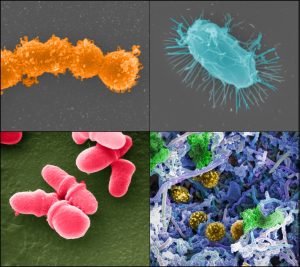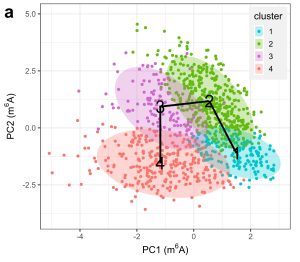24 Nov 2022
“It was really exciting when I got the email first thing in the morning,” says Dr Stephen Jeaco about finding out he was a finalist for this year’s ELTons Innovation Awards. “It was too early to scream or shout, so I waved my arms for joy silently and then took the dog out for a walk instead.” Dr Jeaco is a Senior Associate Professor in the Department of Applied Linguistics in the School of Humanities and Social Sciences at Xi’an Jiaotong-Liverpool University.
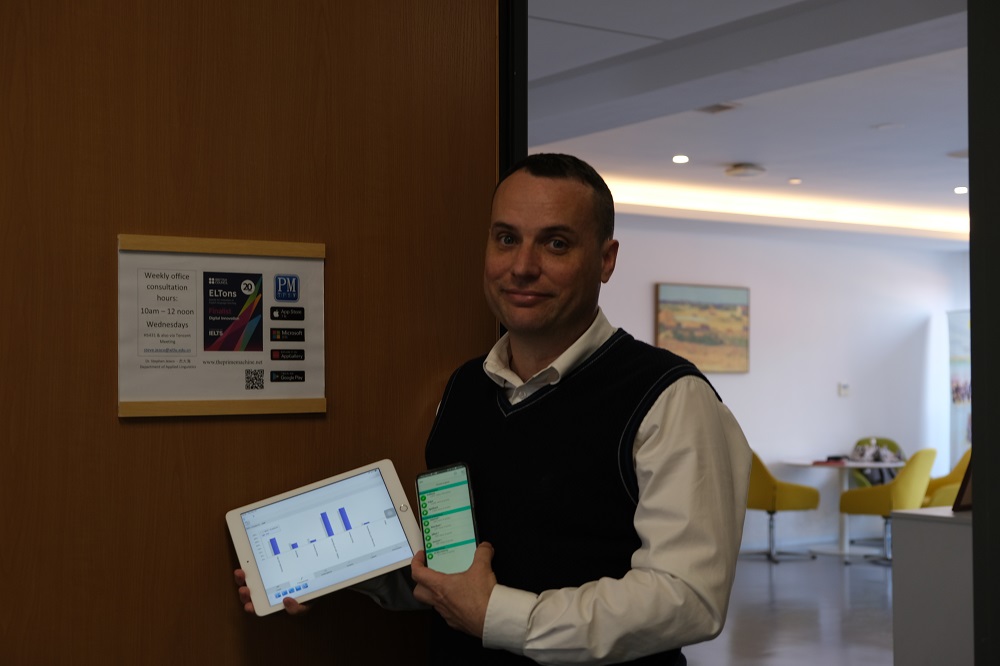
(Dr Stephen Jeaco)
The British Council’s ELTons awards for innovation in English language education recognise the most original courses, publications, projects, apps, and platforms that seek to find new ways to help English language learners and teachers across the globe achieve their goals.
Dr Jeaco and his English language teaching, learning and research software, The Prime Machine, is one of five finalists in the Digital Innovation category.
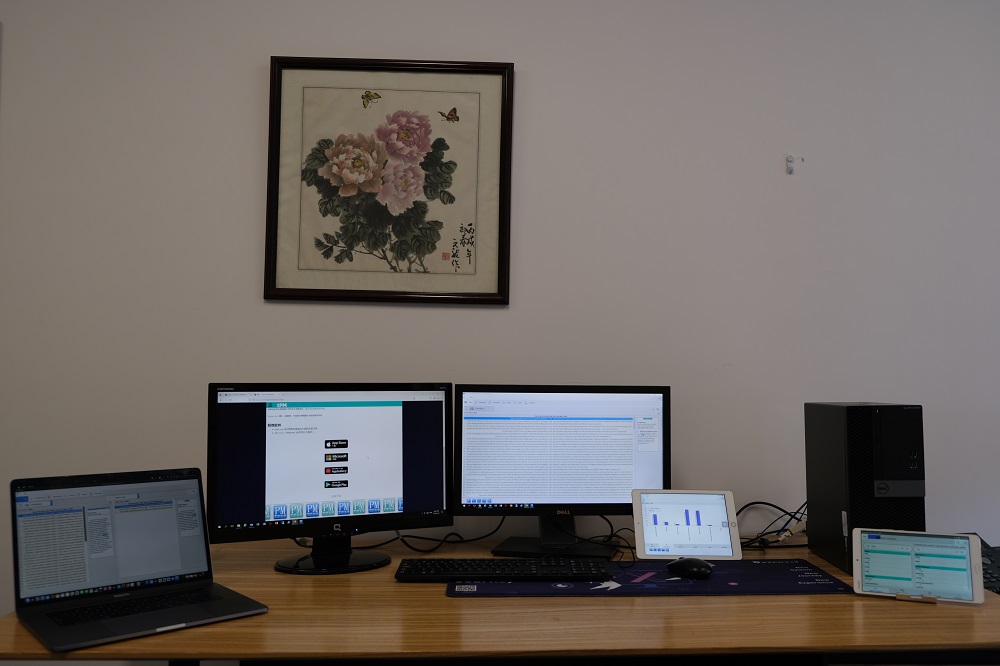
The Prime Machine is designed to provide users with a multitude of examples from corpus texts and additional information about how English is used in different contexts.
Learning by using
“I remember, a couple of years ago, my students joked with me about why it is called The Prime Machine when they have to do all the work and all the thinking,” says Dr Jeaco.
He points out that the major difference between The Prime Machine and other artificial intelligence applications is that “it encourages you to notice and explore all sorts of differences actively.”
Dr Jeaco believes that self-learning can help users learn more efficiently than passively receiving one-way information.
“The software is trying to draw your attention to the patterns in language and nudging you to discover what the differences are for yourself. For example, what kinds of texts the word is used in, and how it differs from its synonyms.”
Inputting the word “dreams”, for example, will result in the software downloading 119 examples of usage in just a few seconds.
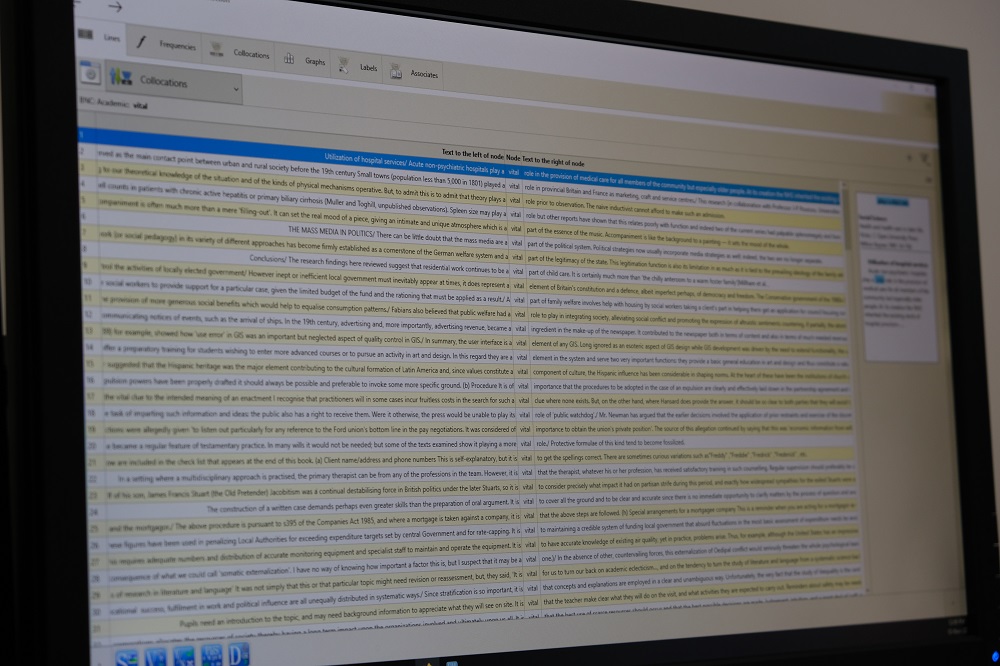
“You can sort the results in various ways to get more context because each of them has the source, the collocations, and the paragraphing. It basically means you can make a mini corpus out of the search,” Dr Jeaco says.
He points out that examples from dictionaries are sometimes out of context, and it is challenging for users to imagine where all the example sentences come from and how to use the words in their daily lives.
“Understanding how to use words and phrases naturally and in the right context is vital for second language acquisition. Thus, it is helpful to provide adequate examples,” he says.
Users are also allowed access to the word’s “frequency data”, including common collocations of various kinds. “Users can see what sections of academic articles contain the word ‘dreams’, what kinds of semantics are going on, and some of the other words used in the text where the word ‘dreams’ is repeated.”

“It is a rewarding process through self-discovering and exploring,” says Dr Jeaco.
Free and accessible
Another feature of The Prime Machine that makes it stand-out is that it is available on a variety of platforms, including Windows, Mac, Android, and iOS for iPad or iPhone.
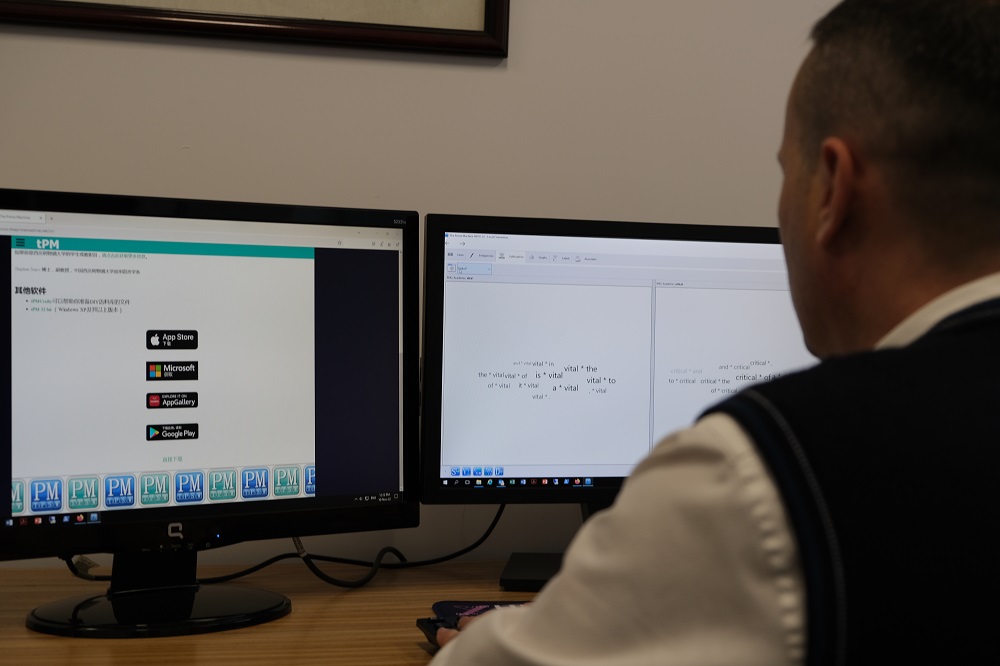
The first version of The Prime Machine was released during Dr Jeaco’s PhD studies. At that time, it was a Windows-only version. In 2019, The Prime Machine was released publicly on Mac, although it was just a download from the website.
“The thing is, you cannot expect every student to own a laptop, and computer rooms are not that common,” Dr Jeaco says. “Having a web interface is also complicated for users as you’ll know if you try to look at a web page on your phone. For concordancing, it’s particularly hard to make the screen display look good on a phone, considering the large amount of corpus linguistic data you have to show.
“So I asked myself, why not design a mobile app to make the corpus data accessible in many more situations?”
It was only in February this year that the software was developed into an application and released on the App Store for Apple devices and on Google Play. “It is not easy to ask people to install apps from an external site, and getting my app into trusted stores like Apple and Google proves its security and stability,” Dr Jeaco says.
The Prime Machine can be downloaded for free from different platforms, and he is very pleased to have been able to make it available to the public to make it freely available to the public. Despite the time and effort put into the app, Dr Jeaco plans to keep it free, to allow as many people as possible to use it. Dr Jeaco believes that any charge, even as little as 1 RMB, would put some people off. He’s very grateful for the teaching and research support from XJTLU to make it possible to host the server and to have the software development tools to continue to develop updates for the app.
“It is designed for everyone studying English, not only XJTLU language teachers and language students doing projects on linguistics.”
A forever career
“I’ve been working on this for 12 years; it has a long history, but it’s quite new in the sense that the app version was just released,” Dr Jeaco says.
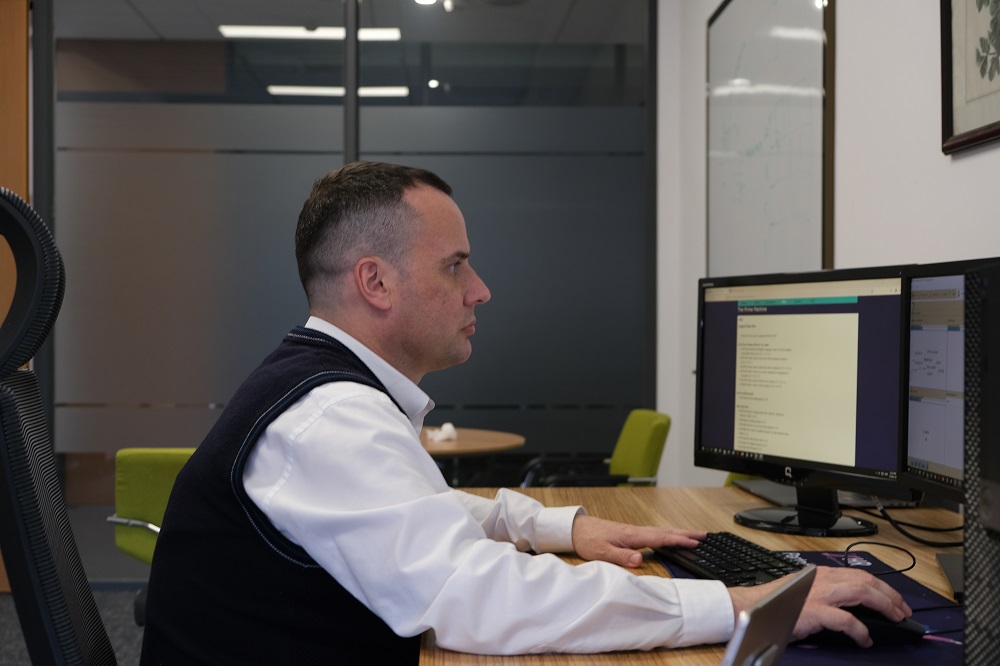
From initiating the project to writing the database scripts and the application code and finally putting it online, Dr Jeaco has been doing all the work himself.
“It has not been easy, but whenever I receive feedback from students or users, I’ll go home, write a couple of lines of script, add a button, and then email back and say, ‘if you update the app, you’ll see a new button there does that.’
“It’s like someone with a racing car, they’re forever adjusting this and that, trying to make it better; I’m forever doing these things. I always want to be doing new things, try new approaches and make learning and teaching more effective and productive.”
By Ying Jiang
Edited by Catherine Diamond
24 Nov 2022

